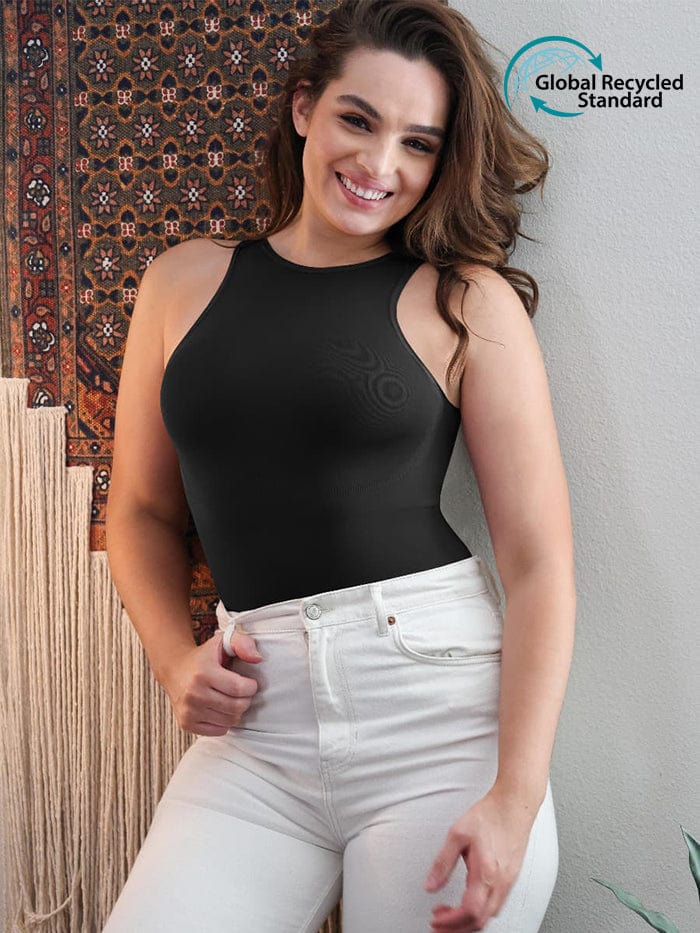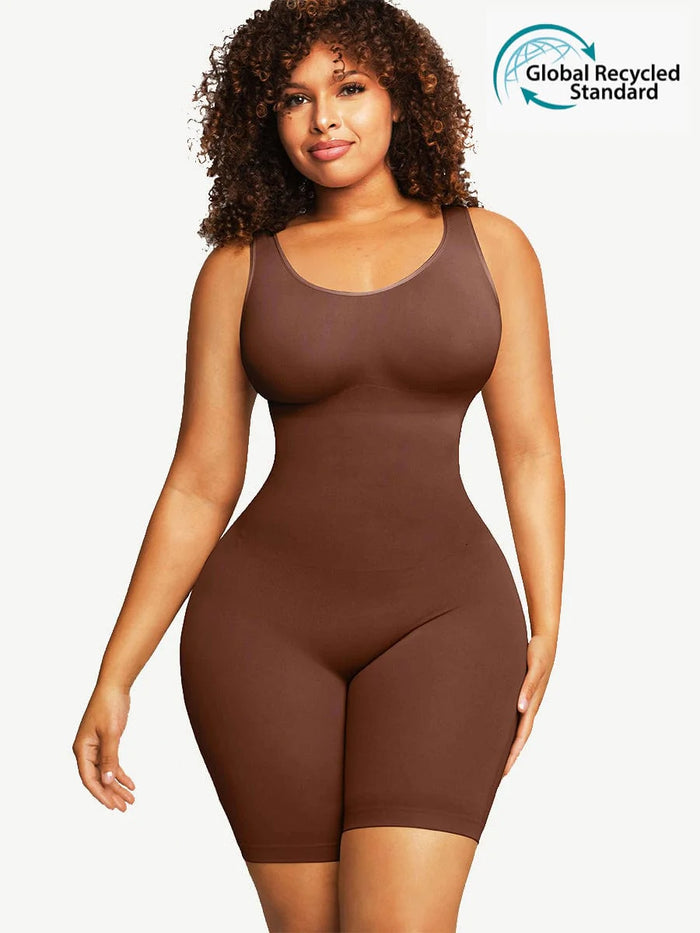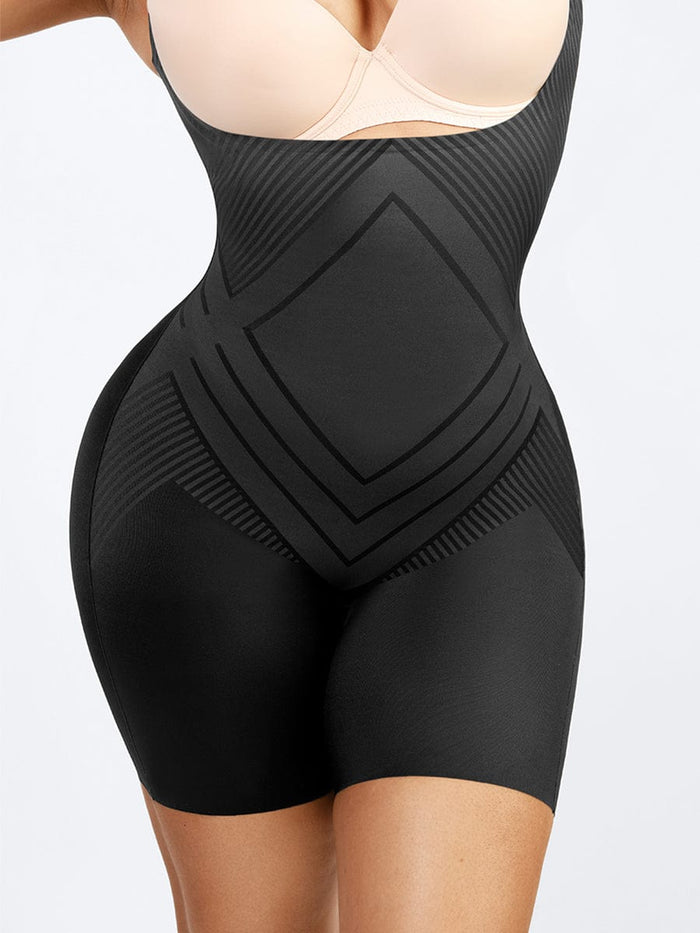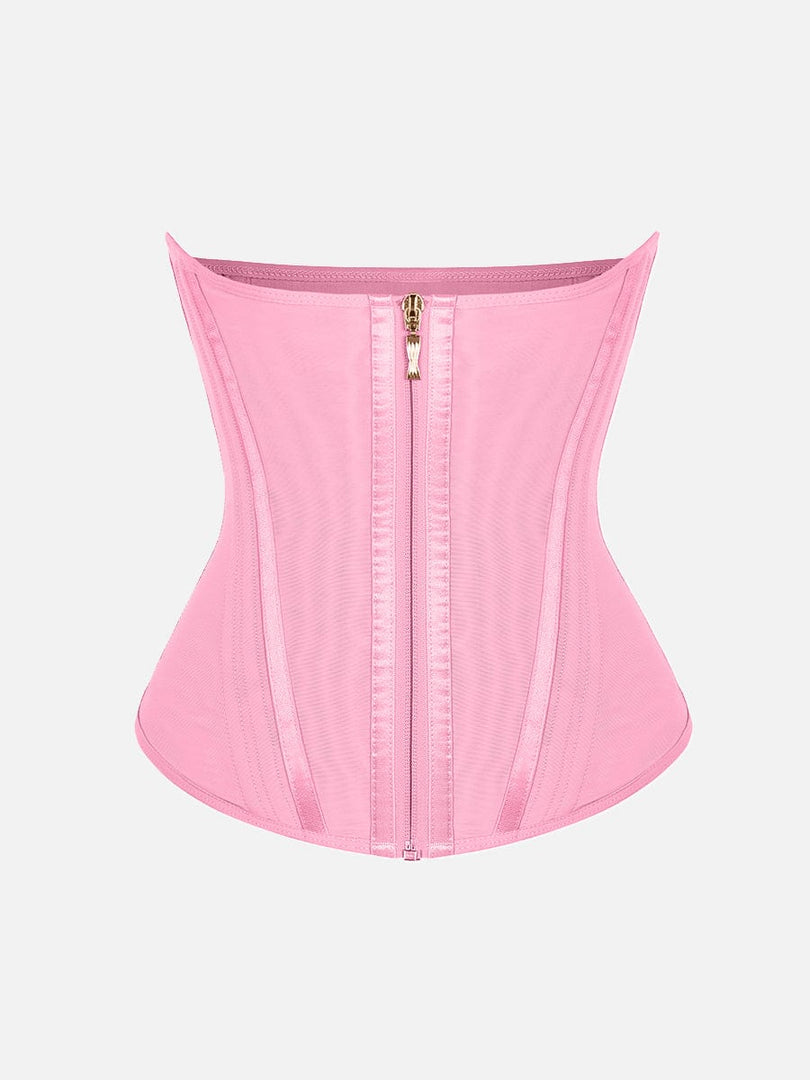We are experiencing an era where fast fashion is dominating the fashion industry but it is also causing a huge environmental impact which has started causing a lot of concern around the world. And sadly, shapewear is not exempt from this scrutiny.
The good thing is that people and consumers of shapewear in general are becoming more conscious of the ecological footprint. We believe it’s important to examine what implications shapewear can have in our environment and look for ways to enjoy a more sustainable future not only in the shapewear industry in general but also in the fashion industry.
Eco-friendly Seamless Outer Crew Thong BodysuitThe importance of shapewear
Shapewear has been designed to contour and enhance the silhouette of the body and in the latest years, they have gained a lot of popularity. As they promise an enhanced figure and much more self-confidence a lot of consumers have embraced them. But sadly, sometimes the manufacturing process and materials that are used in the creation of shapewear will significantly impact the environment.
Production process and materials used
The traditional shapewear and hot sale custom waist trainer were often made with synthetic materials like spandex or nylon. But these materials are derived from petrochemicals that actually contribute to the depletion of fuels that are fossil and greenhouse gasses emissions. Besides, the production of these materials also involves an intensive energy process which exacerbates the environmental footprint further.
Upgrade-Wholesale 3-bones Triple-breasted High-waisted Elastic Body Butt LifterWhen shapewear is manufactured, this process has various stages, first, the fabric gets weaved, then dyed, and then it is finished. All of these steps will consume resources, water, and energy, contributing to degrading the environment and more pollution.
The good thing is that brands like Waistdear follow eco-friendly and sustainable processes and materials to manufacture their shapewear, offering you products that are good for the environment without losing their high quality.
Some fashion trends and the disposable culture
One of the biggest challenges the fashion and shapewear industry has to deal with is that they are associated with fast fashion. What does fast fashion mean? It means that usually, the fashion trends tend to rapidly change, which means consumers will discard or get rid of their pieces to get the new trendy ones. The same happens with shapewear.
Eco-friendly Seamless Outerwear Jumpsuit ShapewearThis culture contributes to the accumulation of a lot of textile waste, which is creating a significant issue in the environment. The majority of this waste will end up in landfills, which will take many years to decompose and that also releases harmful substances to the water and the soil.
How can the shapewear industry navigate towards a more sustainable future?
Even if there are obvious concerns for the environment that are associated with shapewear, there are steps that not only the industry but also the consumers can take to mitigate the impact that they generate and move together towards a much more desirable fully sustainable future.
One of the first steps needs to be to innovate with the materials that they use. Many brands can invest resources to not only investigate but also develop new eco-friendly alternatives. For example, some natural fibers like Tencel, bamboo, or even organic cotton are alternatives that are sustainable and generate lower impacts on the environment.
Wholesale Liquid Spandex Air Slim Open-Bust Mid-Thigh Shaping Boyshort ShapewearSomething that needs to be done is to encourage circular fashion, which means that products need to be designed with recyclability in mind. We want to see brands creating more shapewear that can be recycled easily or that can go to different programs that will recycle or responsibly dispose of them.
Eco-friendly Seamless Outerwear Belly Control Thong BodysuitBesides that, we believe brands should adopt more sustainable and ethical manufacturing practices, in general governments and brands should make the consumers more aware of their choices educate them about the impact of those choices, and encourage them to consume responsibly. And if possible, give second-hand garments and upcycling a go.































